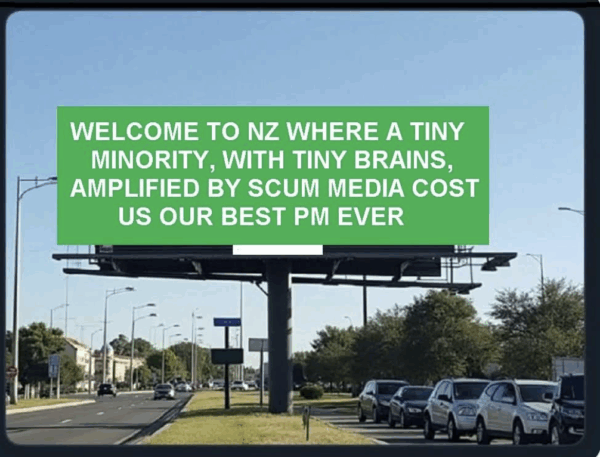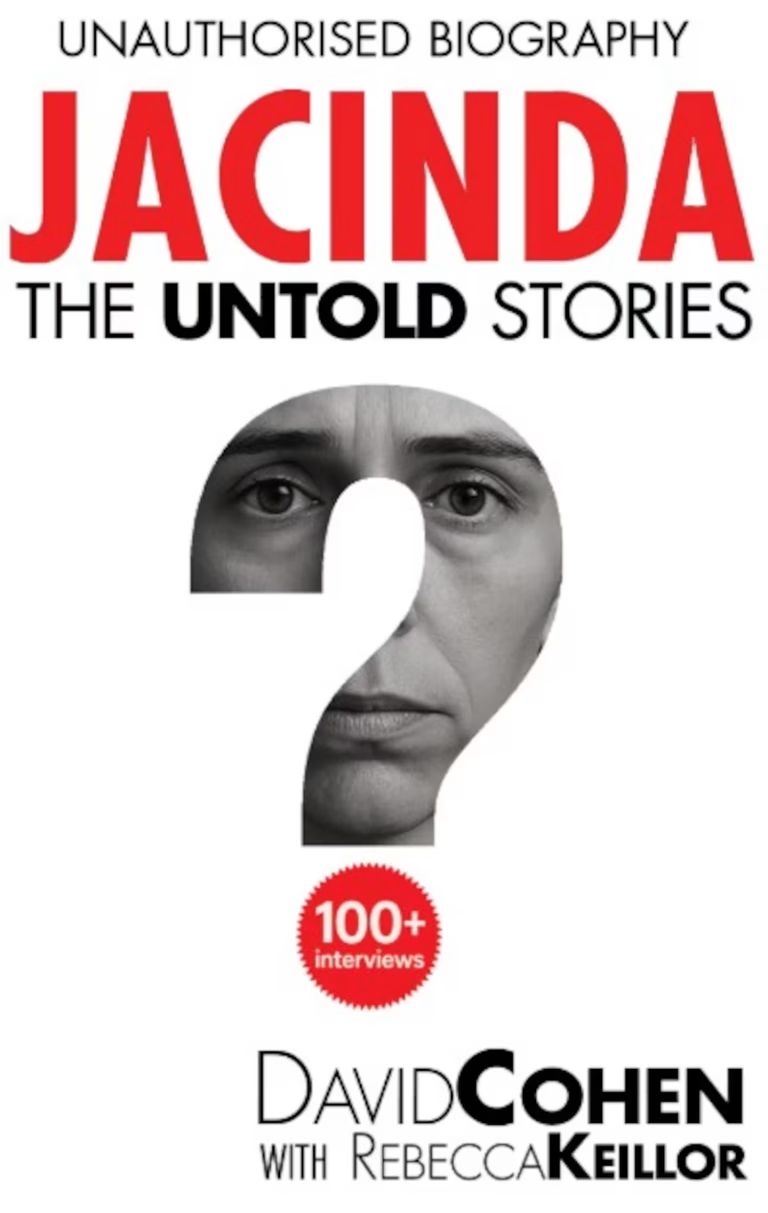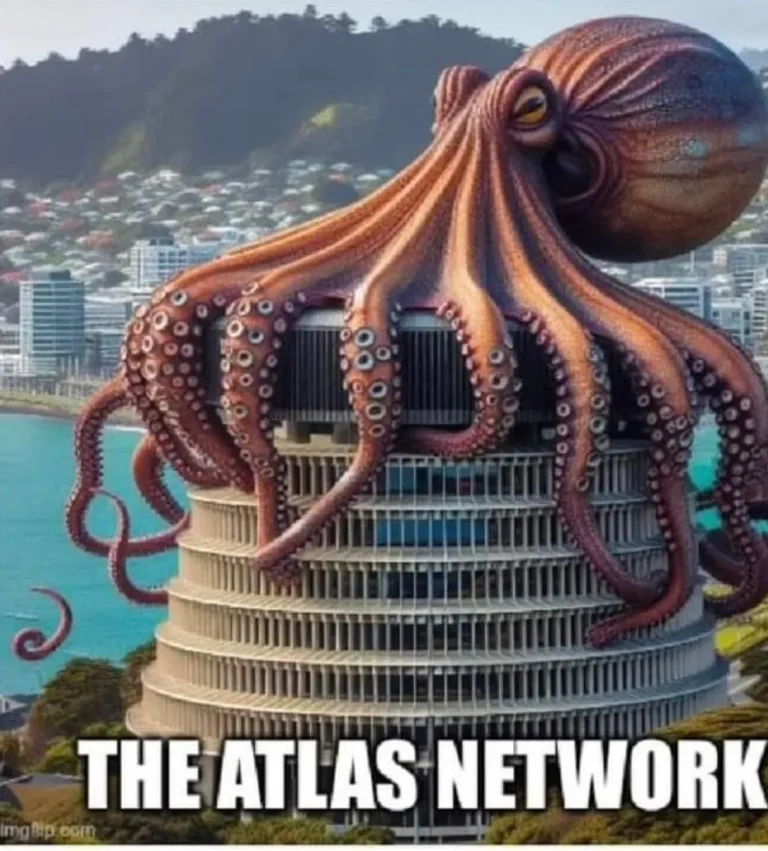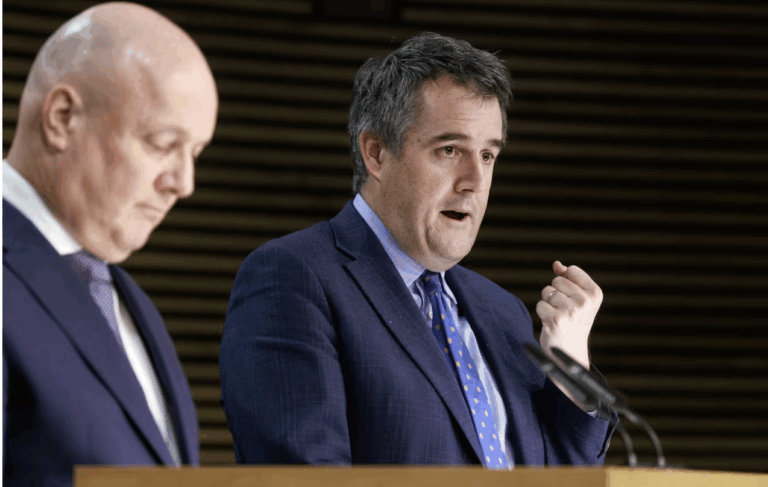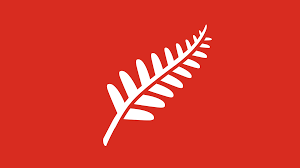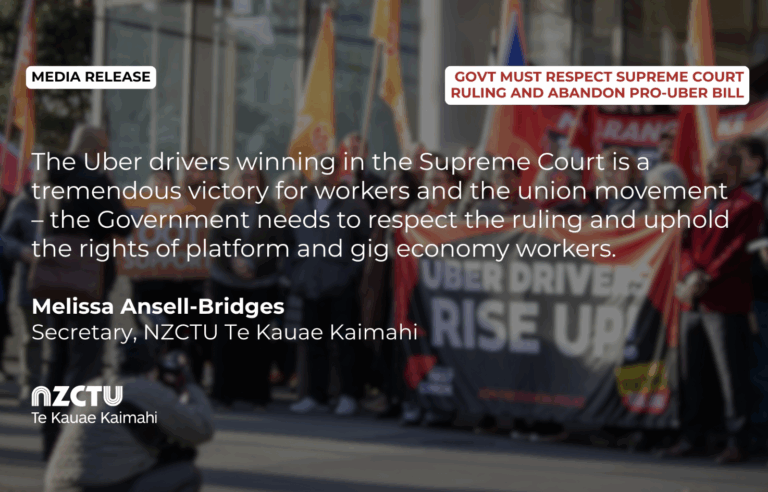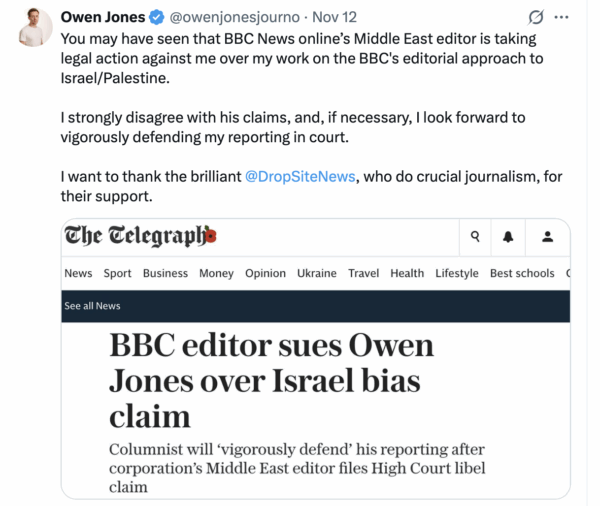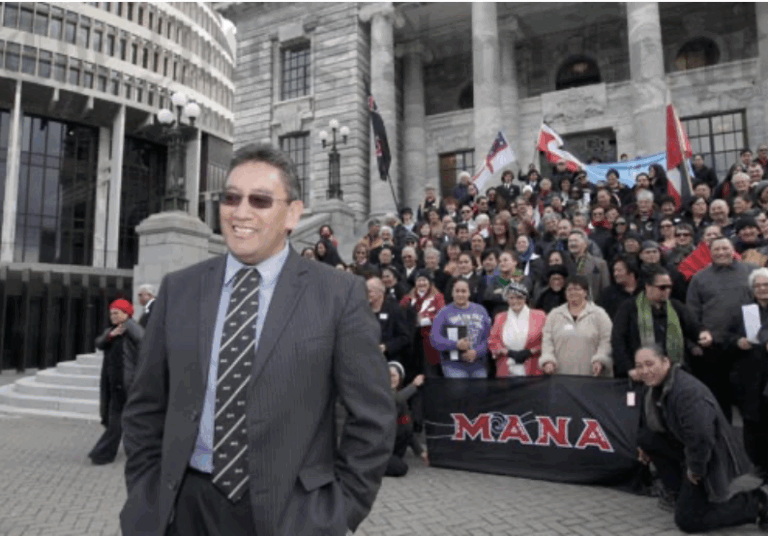Road tolling changes will be tough ‘for users to swallow’
It will be difficult for the Government to justify some of its changes to road tolling, lobby group Transporting New Zealand says.
The Government this week introduced a bill to expand charges for road users, including allowing Corridor Tolling; tolling on parts of an existing road to fund a new project in the same corridor.
The bill will also introduce new payment options for road user charges (RUCs), moving from a system of matching odometer readings to paper labels on the windscreen to subscriptions through private companies.
The vast, vast, vast swathe of Auckland has NO IDEA the roads are about to be privatised in this manner using mass surveillance.
They are just trying to grind out a living during a cost of living crisis in a gridlocked city AND THEN they will be told they are being charged for that.
The bullshit used to support congestion charges are that when they are adopted it sees a decrease in emissions and traffic, but in every single city they have tried this in they have high density public transport, in Auckland we have shit public transport!
Congestion charges will only cause more poverty and misery because there isn’t any fucking public transport infrastructure.
When Aucklanders get blindsided by this, they will scream for blood and demand to know who did it, so your starting hatred should go to the Boomer King, then National, then ACT, then NZF, then Labour and then the Greens.
The Māori Party were the ONLY ONES who refused to vote for this.
This bullshit propaganda is written by a NZ Initiative pimp FFS!
Road pricing: A solution to Auckland’s traffic nightmare
…oh you silly foolish sleepy hobbits, the Far Right Think Tank NZ Initiative is pimping for road privatisation you stupid Aucklanders, and I’m all here with the pop corn to watch the explosion of rage the millisecond you comprehend what’s going on!
As TDB has warned since the last election, National have embarked upon a massive road privatisation agenda while using pot holes and speed limits to keep you distracted you silly stupid hobbits!
They’ve weaponised your impatience so you don’t see the cost they are about to hit you with!
Look Aucklanders, let’s be 100% honest here.
You have no idea what the fuck Congestion charges are and you sure as fuck don’t know they’re coming.
You don’t know it’s a play by right wing think tanks like NZ Initiative to lie and misled you into it because as rich fucks, they don’t care about paying more if you peasants are too poor to use the roads!
You don’t know that the Boomer King Wayne Brown has already pushed go on it and you sure as Christ didn’t know Parliament has already begun legislating for it.
As TDB has painfully and considerably pointed out to you, the entire thing is a scam for the rich and the mass surveillance state…
GUEST BLOG: John McDonald – Six Major Reasons to Oppose Road Pricing
2025 will be a critical year as moves to legalise road pricing schemes are currently underway in Parliament. The congestion charging schemes will involve additional surveillance technology being used to monitor vehicle movements and a billing system which effectively turns existing public roads into toll roads. A combination of charges, fees, permits, and fines are used in the schemes to collect revenue and penalise private motor vehicle travel.
Surveillance technologies often involve automatic number plate recognition cameras (ANPR) or radiofrequency identification checkpoints (RFID). The more ambitious schemes being proposed involve nationwide tracking of all vehicles on all roads using compulsory GPS-type devices, with this being promoted as a future replacement for fuel taxes and road-user charges.
A number of different terms are used for road pricing (and/or vehicle travel penalty) schemes being proposed in New Zealand or for schemes already established in some overseas cities.
These terms include: Variable Road Pricing (VRP), Congestion Charging, Time-of-Use Charging, Smart Road User Charges (Smart RUC), Pay-As-You Drive (PAYD), Universal Road Pricing, Dynamic Road Pricing, Variable Road Pricing (VRP), Urban Road Pricing, Electronic Road Pricing (ERP), Local Variable Charging, Traffic Filtering, Clean Air Zones (CAZ), Ultra Low Emissions Zones (ULEZ), Zero Emissions Zones, or Zone à Trafic Limité (ZTL), which if you live in Paris translates to “Limited Traffic Zone”.
In some cases there are technical and policy differences related to the use of the different terms. However, all the schemes involve monitoring vehicle movements and extracting revenue from road users. Many schemes have the implicit or explicit aim of restricting, limiting, or deterring automobile use, as part of efforts to manipulate the behaviour of travellers.
Governments and councils give a variety of reasons for implementing the schemes. Reducing congestion, air pollution, and climate change policy are some of the typical justifications for implementing the schemes. The city of Manchester in the United Kingdom provides an example of a council making repeated attempts to introduce such schemes, using different justifications each time. Importantly, opposition from the public was able to halt the different charging schemes in Manchester.
This article will cover six major reasons to oppose road pricing, covering both the current bill before Parliament and proposed schemes into the future.
-
-
-
- Additional taxes and charges
- Changing the existing ‘social contract’ around toll roads, rights, and freedom of movement.
- Additional costs to society in the set up and running of the schemes.
- The use of incrementalism and gradualism to undermine opposition.
- Social engineering and future ideological uses of the schemes.
- Expanding the surveillance state and enabling ‘turnkey totalitarianism’.
The Ministry of Transport acknowledged many of these concerns when briefing Cabinet in 2024, even mentioning the potential “totalitarian” aspects.

Hamilton City Council experiments with different traffic monitoring technologies in 2024
1. Additional taxes and charges
Road users, already under pressure from cost-of-living increases, will face additional charges, taxes, and fines if the schemes are introduced. This will add to the expense of travel and will especially impact those without other viable travel options. The latter point is particularly relevant in New Zealand, where suitable public transport options are limited for much of our population. The additional road pricing costs for moving goods and service providers around the city will also likely be passed on to consumers and customers.
Those promoting the road pricing schemes often emphasise the negative economic impact of traffic congestion and often use the slogan “congestion is a tax on your time”. But, many things in life (other than Auckland traffic) are frustrating and consume our time inefficiently. We rarely find ourselves demanding more government micromanagement in our lives and additional taxes to deal with those frustrations.
For the proposed schemes to work at reducing congestion, the additional financial burden would need to be harsh enough to start pricing people off the roads or out of their motor vehicles altogether.
According to studies in Sweden, city-dwellers with the highest income tend to benefit the most from congestion charges. Those on an executive salary who use a company car are more likely to experience net benefits from a congestion charging scheme. People on lower incomes are more likely to suffer a net loss from the charging.
Implementing additional taxes is going to have negative impacts on our society, especially if the schemes are implemented at a time when many are already experiencing financial hardship.
2. Changing the existing ‘social contract’ around toll roads, people’s rights, and freedom of movement.
Some people will dismiss the term ‘social contract’ as a ‘fluffy’ fictional concept invented by philosophers such as Jean-Jacques Rousseau. However, in this case there exists a clear written contract between the people and the state for the use of New Zealand’s roads and funding of the associated infrastructure. A major part of that deal is outlined in sections 46-55 of the Land Transport Management Act 2003.
The government can build a new road and charge tolls to pay for the construction and maintenance of that new road according to the current ‘social contract’. Conditions of the current deal are that the government cannot charge people tolls to use existing roads and can only charge people to use a toll road if a “feasible, untolled, alternative route is available to road users”. According to the existing legislation, the public always gets a new road in exchange for paying tolls and people always have the choice about whether to use the new tolled route or use the older free route instead.
Installing time-of-use or congestion charging schemes on existing roads is currently illegal.
Attempts by governments to legalise the new road pricing schemes represent a radical change to the existing deal between the people and the state. The Government is effectively re-negotiating the ‘social contract’ in a way that impacts our rights to privacy and freedom of movement. As this is a negotiation, it is important that people strengthen their negotiating position to ensure that the state respects their rights now and into the future.
Beyond the financial aspect of paying for the use of a road on-which travel was previously free, we are also getting into the territory of needing to ask the state’s permission to travel within our own country. It may not be a Soviet-style checkpoint where the guard asks to see your travel papers. Instead we will likely get an automated, postmodern version where a computer system sends you fines for not ‘downloading the app’ and not getting the Government’s permission for using that route on that day.
The public discussion needs to move away from ‘Auckland traffic is bad and we need to do something about it’ and towards ‘this legislation could significantly change the relationship between the people and the state’.
Governments will likely attempt to take away your rights and then sell them back to you as privileges.
3. Additional costs to society in the set up and running of the schemes
The major economic arguments for road pricing are that the revenue from the scheme will cover the cost of the scheme and that more efficient allocation of road space will lead to overall economic benefits.
Even assuming that both of those arguments are correct, we will still be in a situation where road users are paying for the scheme’s set up cost and operational expenses. The schemes will add unnecessary extra costs on society. We are looking at probably hundreds of millions of dollars just for an Auckland scheme and probably billions for a nationwide scheme.
“The net revenues from charging will vary depending on the nature of the charging design. For example, options identified in 2018 for the Auckland Congestion Question work were assessed as generating between $21 million and $261 million annually in gross revenues, with annual operating costs of $10m to $267m. In addition, scheme revenues would need to cover capital costs of between $46m to $580m, and renewal costs of $14m to $174m.
While these figures are no longer current, they illustrate the potential for wide variation in scheme costs and net revenues depending on the charging design in the scheme.”
Regulatory Impact Statement: Time of use charging, Ministry of Transport, 15 May 2024
The set up and operation of a road pricing scheme will likely financially benefit overseas tech corporations. For example, IBM initially installed and operated Stockholm’s congestion charging scheme in 2006, a scheme with an estimated 200 million euros in set up costs. Should a similar scheme go ahead in New Zealand, tech companies would gain considerable income taken from New Zealanders’ bank accounts.
In the current bill, any revenue from a scheme goes to fund the scheme’s costs as a priority. Once the scheme’s establishment costs, operational costs, billing costs, management costs, and governance costs are paid, any remaining revenue can then be spent on local land transport infrastructure. All the extra costs created by the scheme are a waste of what is effectively tax revenue. When revenue goes to tech companies for creating a surveillance system, it represents revenue which is not being spent on maintaining roads or improving public transport options.
A road pricing scheme is an additional, unnecessary cost to our society. It will likely become another case of ‘paying more to get less’.
4. The use of incrementalism and gradualism to undermine opposition
Public opposition to road pricing schemes is often strong and such opposition has prevented many schemes being implemented internationally. Advisers to governments recognise how an incremental or gradual approach to implementing the schemes can be used as a way of mitigating opposition.
A large, complex scheme with high initial charges and heavy restrictions would likely be too much of a shock to the general public and mobilise too much opposition. The initial schemes will likely start small, simple, and with low charges. Once the public has adjusted to the ‘new normal’, then higher charges, greater complexity, and heavier restrictions could then be introduced more easily over time.
The initial schemes will be the ‘thin edge of the wedge’ and then we will be on a ‘slippery slope’ towards expanded schemes that the public would otherwise strongly oppose. On a personal level, it is countering these sorts of underhanded strategies which motivated me to get involved in local politics. People are not being provided with genuine consultations or the right to self-determination.
Public perception is being managed through the use of communication strategies. Inauthentic community consultation is used to ease the transition towards a destination already determined by policy-makers. Ministry of Transport cabinet documents indicate that the long-term plan is a nationwide scheme which tracks all motor vehicles on all public roads. The current bill, and an initial Auckland scheme, is being viewed within Government as a step towards a nationwide tracking and charging system.
WSP (a “professional services” firm) is a close collaborator with the Helen Clark Foundation (a think tank). WSP has promoted the “taking them on a journey” strategy in their 20-min city in Aotearoa report. That report also suggests strategies such as a “…staged, gradual model that makes it increasingly difficult to drive or get around by car, with strong alternatives in place” as a way of mitigating the issue of people seeing the measures being used to “reduce private vehicle travel” as a threat or a loss.
“Starting early with the community and taking them on the journey with the project is key to reducing the opposition to change. People become outraged when they feel coerced, it’s unfamiliar, they don’t have control on the future and lack trust in the decision makers. As such we need to keep the community at the heart of change having clear rationale and the story about ‘why’. Engaging with the loud voices early and seeking to deeply understand their opposition will help development of a robust engagement strategy.”
WSP Future Ready® 20-min city in Aotearoa, Page 14
With regard to congestion charges specifically, a form of the “taking them on a journey”strategy has also been promoted by Taituarā (an organisation that lobbies Central Government on behalf of local government managers and council executives).
A recent report published by the New Zealand Initiative (another think tank) also advocates for “gradual” and “incremental” implementation of road pricing schemes. That report also describes a number of “cautionary tales” from overseas cities using lines such as “…fierce opposition from residents and businesses who feared the economic impact and perceived unfairness of the charges”.
When the policy-makers start ‘taking you on a journey’, you might not like the final destination.
5. Social engineering and future ideological uses of the schemes
Though most political parties in the current Parliament support road pricing schemes, there appears to be some disagreement between the parliamentary left and right as to how such schemes should operate.
Those on the right, represented by the National Party, ACT Party, and the New Zealand Initiative, tend to favour schemes with minimal waivers and discounts, where “market forces” allocate road space efficiently according to a “pure user-pays model”.
On the left side, represented by the Labour Party, Green Party, and the Helen Clark Foundation, they view the schemes as opportunities for “improving equity”, reducing car driving, cross-subsidising public transport, and generally giving officials more levers to “incentivise or discourage certain behaviours for the public good”.
Special waivers and discounts for specific identity groups have been part of the public discussion around future road pricing schemes. The AA has reported on a Tauranga City Council commissioner discussing how in future schemes “…number plate recognition technology could be used to provide dispensation – this could be based on age, income-level or occupation”. The Congestion Question report about a future scheme to address Auckland’s congestion problems suggested “…discounts or waivers for Mana Whenua members or holders of cultural obligations”. Recently, The Press reported that Christchurch City Council staff are calling for “…exemptions on equity grounds, such as for people with disabilities, essential workers and people from low income backgrounds” to be allowed in future schemes.
The current bill only allows emergency vehicles to be granted waivers so only emergency services can escape being charged. However, a new government could easily revise the schemes and start selectively providing free travel privileges. Besides handing out special travel privileges, a future government could also amend the legislation specifically to give bureaucrats control over more “levers” to manipulate behaviours and engage in social engineering.
Should governments be focused on ‘providing services’, or ‘transforming societies through behavioural modification’?
6. Expanding the surveillance state and enabling ‘turnkey totalitarianism’
The state’s surveillance capabilities will increase due to the establishment of road pricing schemes, whether it is a small scheme with number plate reading cameras or a nationwide scheme using in-vehicle GPS units.
The current bill appears to adopt the “standard privacy and data security provisions”used for New Zealand’s existing toll roads.
As the covid-era policies demonstrated, our rights and privacy protections can quickly be dismissed by governments. Existing surveillance capabilities can easily be abused and exploited, especially if an emergency has been announced.
Lockdowns are now part of our recent history and no longer a far-fetched scenario. Future lockdown-like situations (whether targeting individual cities, regions, or at a nationwide scale) could exploit surveillance systems which are designed to monitor road usage and manage travel permissions.
New Zealand Police have faced criticism for misusing automated number plate recognition cameras to track people in 2021and using deception to bypass legal protections. The criticism was too late to make a practical difference. Legislation and policies on surveillance and privacy protections were not effective at preventing those abuses.
Abuse of surveillance capabilities by small groups of police is a problem; the use of surveillance capabilities by any future authoritarian regime is a much more serious issue.
“Turnkey totalitarianism” is the concept that governments which are not overtly hostile to the population slowly introduce surveillance and related legal tools. Those tools and a ready-built system can then be exploited by any future, and more openly oppressive, regime.
You might view a government as ideological friends or too incompetent to carry out a sophisticated, nefarious plan. However, the government that establishes a surveillance system is not necessarily the future regime which relies on that system to maintain power and suppress dissent. The system is first established, then a future regime can ‘turn the key’ or ‘flick the switch’ to activate the system’s more oppressive functions.
“Rather, the appropriate question is whether the creation of a system of surveillance perilously alters that balance too far in the direction of government control, whether or not we have problems with the current use of that system. We might imagine a system of compulsory cameras installed in homes, activated only by warrant, being used with scrupulous respect for the law over many years. The problem is that such an architecture of surveillance, once established, would be difficult to dismantle, and prove too potent a tool of control if it ever fell into the hands of people who—whether through panic, malice, or a misguided confidence in their own ability to secretly judge the public good—would seek to use it against us.”
Julian Sanchez, A Reply to Epstein & Pilon on NSA’s Metadata Program, 2013, Cato Institute
Concerns about the “totalitarian” aspects of road pricing schemes made it into the following list prepared by the Ministry of Transport ahead of the current bill going before Parliament.
“The arguments against increased use of local variable charges include:
-
- charges are regressive and inequitable and would fall disproportionately on low-income groups and the disabled. As such, the public transport system needs to be a credible alternative to cars before charging occurs.
- increasing charges for those experiencing the most congestion would be unfair as they have already paid for these roads.
- government tracking of movements is totalitarian and a risk to personal freedom and privacy.
- the net benefits are marginal with considerable risk that actual costs will exceed the benefits.
Regulatory Impact Statement: Time of use charging, Ministry of Transport, 15 May 2024
We might not be living under a totalitarian state at the moment, but do you trust that the authorities will not abuse vast surveillance capabilities in the future?
The next steps in a long conflict
Many politicians, bureaucrats, and think tanks are pushing for road pricing schemes and are putting considerable effort into driving the change forward. Some of the motivation is ideological and some financial. Central Government and many city councils are deep in debt and are seeking new ways of collecting revenue. They will be pushing hard to establish road pricing, against public opposition which can stop or reverse the schemes. We can expect to see many battles ahead.
The select committee is receiving feedback on the current bill until the 27th of April 2025, this is an opportunity to let Central Government know your concerns and show the determination of the opposition.
Raise awareness in your communities and contact Members of Parliament, especially in the lead up to the next vote on this bill. Protests and petitions will become more effective once more of the public are aware of the issues and the moves to implement (or expand) road pricing schemes are underway.
If the bill passes in Parliament, there will be opportunities to stop schemes at the local council level. The Manchestercase provides examples of how local communities can effectively oppose similar schemes.
The local government elections in October 2025 provide more opportunities to challenge any potential schemes. Road pricing can be made an election issue and candidates pressured into taking a public stance.
In my opinion, we have a responsibility to stop the road pricing schemes well before they become established. Schemes should be stopped before the Government and councils sink hundreds of millions of dollars into installing surveillance systems. The authorities will likely fund the installation costs by adding to their enormous levels of debt. They will then expect us, and future generations, to pay for this debt through increased taxes, charges, fines, or reduced quality of government services.
We can let the politicians know that they risk losing elections if they vote for such schemes. We can work towards a future where mass surveillance systems are banned and the public are not financially burdened by the associated schemes.
…oh you gloriously silly stupid sleepy Hobbits.
I don’t drive, so I don’t have a dog in this fight you clowns, but oh sweet Jesus your screams when you realise it’s all going down.
Once again, you are being tricked into road privatisation you silly stupid hobbits..
Watching the coming shock wave of fury from Aucklanders when they are told how much they will have to pay to sit in gridlock will be beautiful.
TDB will be reminding you all who to blame with your rage the moment Auckland realises what is coming.
Happy Days.

Increasingly having independent opinion in a mainstream media environment which mostly echo one another has become more important than ever, so if you value having an independent voice – please donate here.

